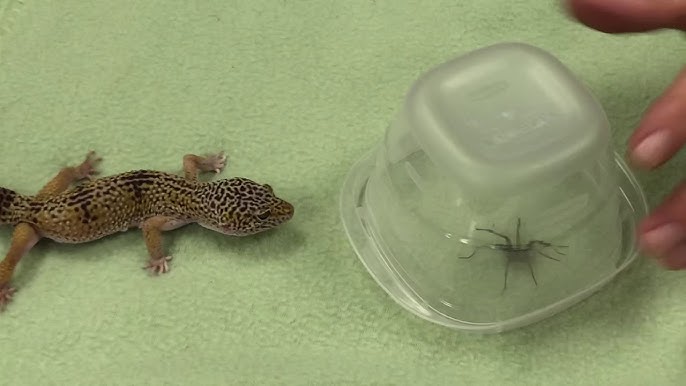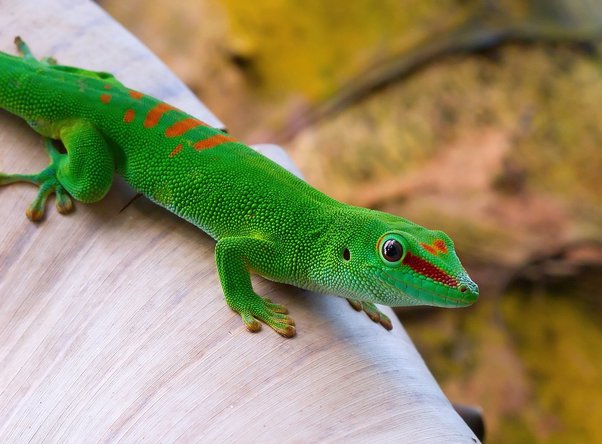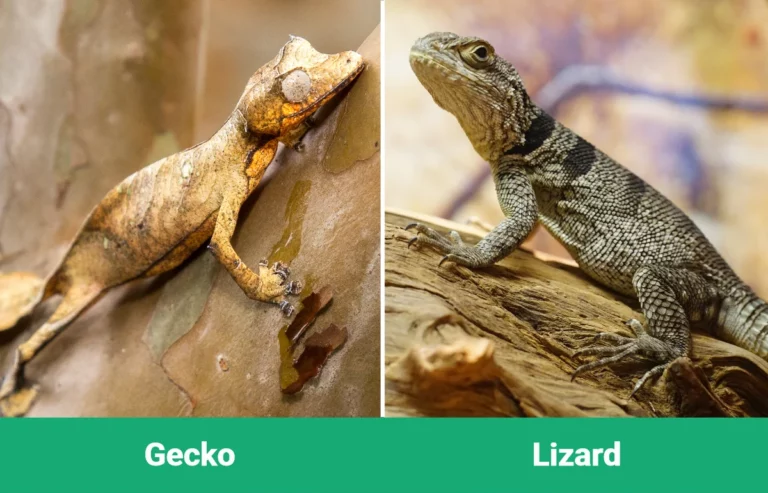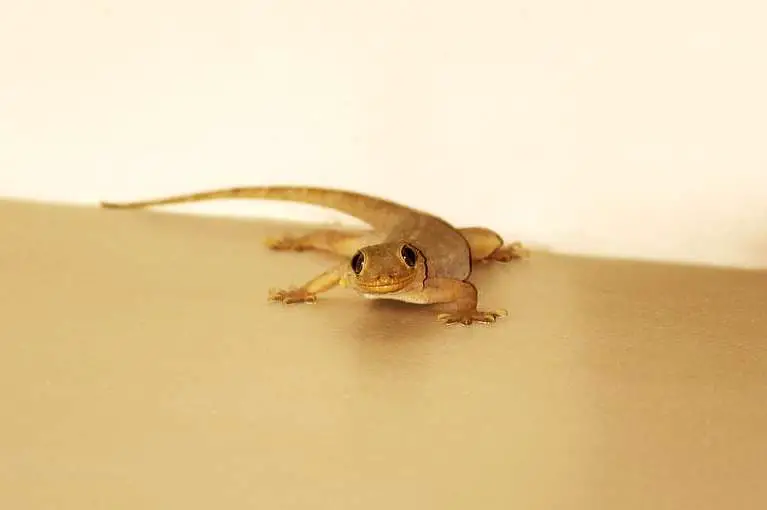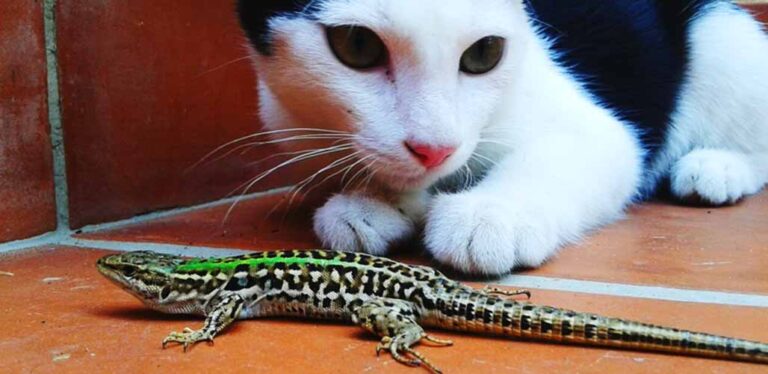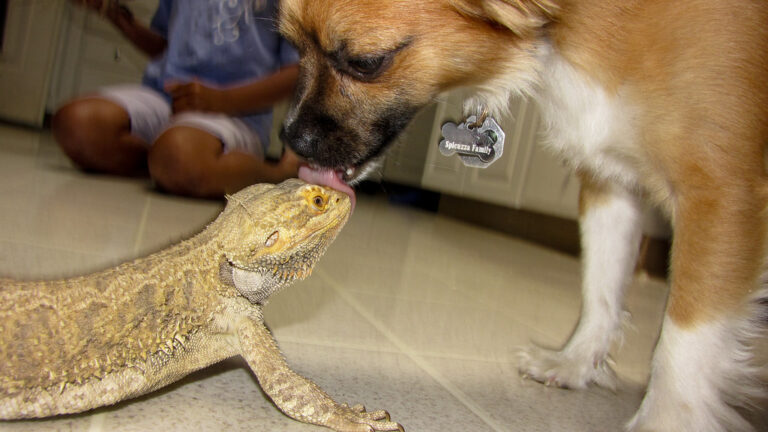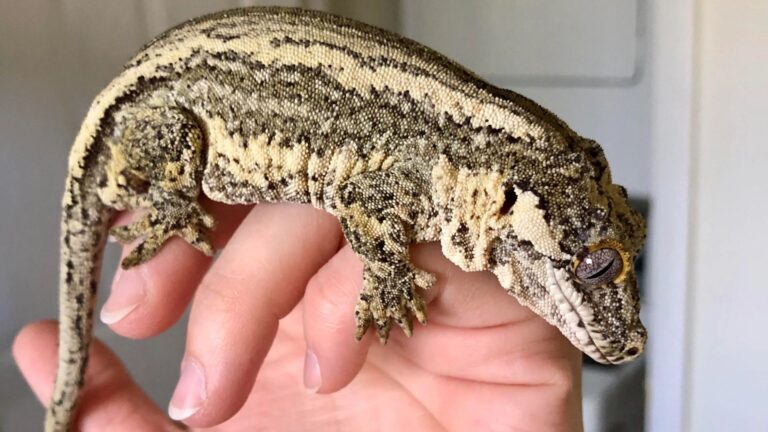Do Geckos Eat Spiders? A Closer Look at Gecko Diets
As a passionate gecko owner, I’ve always been fascinated by the diverse dietary habits of these remarkable reptiles. One day, while observing my gecko’s inquisitive nature, I couldn’t help but wonder, “Do geckos eat spiders?”
It’s a question that has piqued the curiosity of many reptile enthusiasts like me. After a lot of research I found that YES, geckos can eat spiders, but it’s essential to be cautious. Cause they are generally safe for them, but wild-caught may have ingested harmful pesticides. To ensure safety, only feed them store-bought spiders.
In this article, we’ll delve into the intriguing world of gecko diets, exploring whether spiders are on the menu and uncovering the best practices for ensuring our geckos’ health and happiness. Join me on this informative journey as we unlock the secrets of gecko nutrition.
Reasons Why You Shouldn’t Feed House Spiders To Crested Geckos?
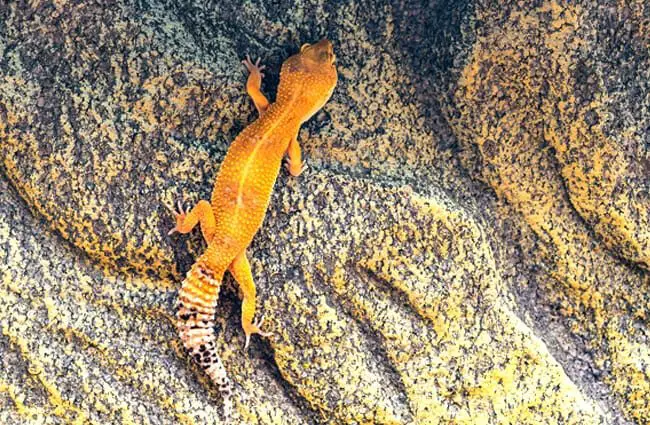
Risk of Pesticides: They might have come into contact with pesticides or other harmful chemicals, which can be toxic to your crested gecko. It’s difficult to guarantee that wild one insects are free from such contaminants.
Parasites and Disease: Wild insects can carry parasites and diseases that may be harmful to your gecko. Feeding them wild-caught prey increases the risk of introducing these health threats into the environment.
Nutritional Imbalance: House spiders may not offer the same nutritional value as commercially bred feeder insects. They require a balanced diet with specific nutrients, and relying on wild-caught prey may result in nutritional deficiencies.
Difficulty in Identifying Harmful Species: Not all are harmless. Some spiders are venomous, and it can be challenging to differentiate between venomous and non-venomous species. Feeding venomous spiders to your gecko could be fatal.
Inconsistent Diet: It’s challenging to ensure a consistent and varied diet when relying on wild-caught insects. Commercially bred feeder insects are often gut-loaded and dusted with supplements to provide the necessary nutrients.
Ethical and Environmental Concerns: Over-harvesting insects from the wild can have negative ecological consequences. It’s more sustainable to support captive breeding programs and reduce the impact on wild populations.
Benefits of Feeding Spiders to Geckos
Protein-Rich Diet: Protein is crucial for the growth and overall health of Geckos. Spiders are notably protein-rich, containing approximately 6.3 grams of protein per 10 grams, which provides a substantial protein source for the diet.
Active Prey: Also, they are natural hunters, and they are more likely to be stimulated by prey that moves and wiggles. Spiders’ natural behavior of crawling and moving around can engage your gecko’s predatory instincts, making mealtime more stimulating and enjoyable for them.
Ease of Availability: While it’s essential to avoid feeding wild-caught spiders due to potential risks, you can readily find live spiders from reputable online reptile supply stores. This convenience ensures a safe and reliable source of spider prey for your buddy.
Suitable Spider Types for Geckos:
Geckos can safely consume the following types of spiders:
- Daddy Long Legs
- House Spiders
- Wolf Spiders
- Jumping Spiders
- Tarantulas
It’s crucial to emphasize that these spiders should be purchased from reputable sources and only offered to pet when they are alive. Live spiders are more engaging for it and provide better nutrition compared to dead ones.
Important Safety Considerations:
Avoid Wild-Caught Spiders: Never capture spiders from the wild or your home and feed them. Wild-caught spiders may carry pesticides or parasites, posing health risks.
No Poisonous Spiders: It’s imperative to steer clear of feeding them any poisonous spiders, such as Redback spiders (Latrodectus hasselti) and black widows (Latrodectus mactans). The venom of these spiders can adversely affect your gecko’s nervous system and health.
Nutritional Value of Spiders Vs. Other Feeder Insects
| Nutrient (Per 100 grams) | Spiders | Crickets | Mealworms | Silkworms | Roaches |
| Protein | 63 grams | 19 grams | 19 grams | 13 grams | 20 grams |
| Fat | 10 grams | 5 grams | 9 grams | 2 grams | 8 grams |
| Calories | 90 | 121 | 206 | 123 | 237 |
While spiders are indeed high in protein, it’s crucial to remember that reptiles like Geckos require a well-rounded diet. This includes a variety of feeder insects like crickets, mealworms, silkworms, and roaches. Each of these insects offers different nutrients, such as protein, fat, and calories, which are essential for your reptile’s overall health.
Further, to meet your reptile’s nutritional needs and prevent imbalances, it’s best to provide a mix of these feeder insects. Additionally, always consult with a reptile veterinarian or experienced reptile keeper to ensure you’re giving your pet the right diet. Variety and proper supplementation are key to keeping your reptile happy and healthy.
How Many Spiders Can Leopard Geckos Eat?
| Gecko Size | Number of Spiders |
| Juvenile (2-4 inches) | 1-2 spiders |
| Subadult (4-6 inches) | 2-4 spiders |
| Adult (6-10 inches) | 4-6 spiders |
Storing Spiders for Geckos:
Purchase from Reputable Sources: Always buy spiders from reputable pet stores or online suppliers rather than capturing wild ones. This ensures they are safe and free from potential contaminants.
Storage Containers: They can be stored in jars or plastic containers with small ventilation holes. Ensure the containers are escape-proof and provide an appropriate environment for the spiders.
Longevity: Many species can live for months if kept in suitable conditions. Make sure they have access to water and maintain a proper temperature and humidity level within their containers.
Diet for Spiders: They primarily consume insects and may not eat fruits or vegetables. If you plan to use them as feeder insects for your Geckos, consider “gutloading” the spiders by feeding them nutritious insects before offering them. This verify your geckos receive a well-rounded diet.
Feeding Spiders to Geckos
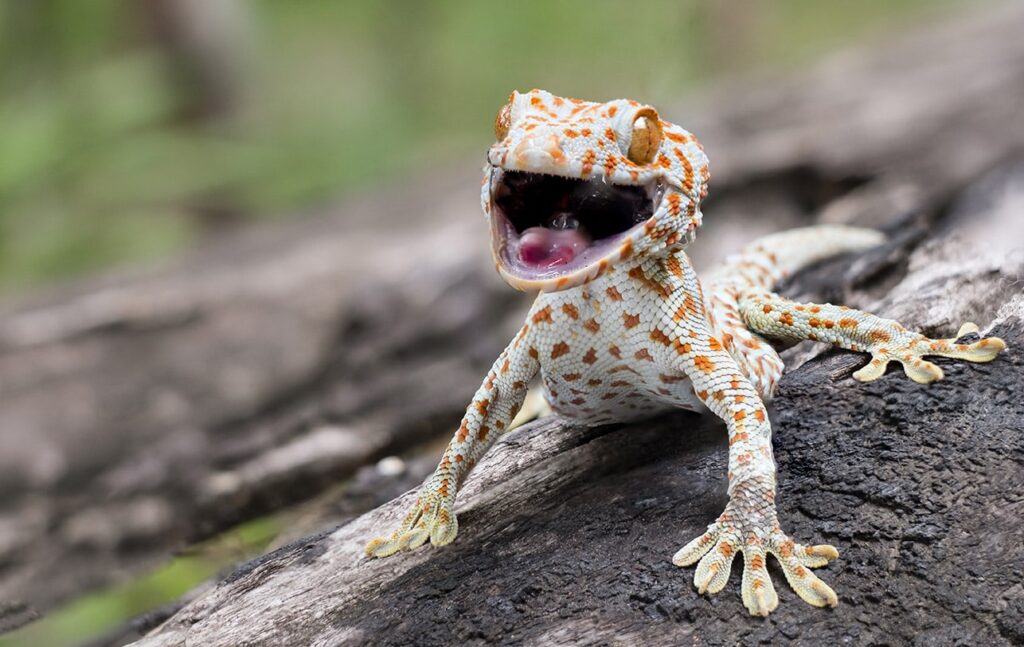
Live Prey: You don’t need to kill the spider before feeding it to your Leopard Gecko. Geckos typically prefer live prey, as it stimulates their hunting instincts.
Encouraging Movement: Some spiders may remain still when faced with a predator. To encourage movement and make it more enticing for your gecko, gently prod the spider with a stick or another non-threatening object. This can mimic natural hunting behavior and engage your gecko’s interest.
FAQs
Better Alternatives to Spiders for Geckos?
While geckos can eat spiders, better alternatives include commercially bred feeder insects like crickets, mealworms, dubia roaches, and silkworms. These insects are safe, nutritious, and more readily available.
2. Do Geckos Eat Spiders?
Yes, geckos can eat spiders, but it’s essential to provide store-bought spiders to avoid potential exposure to pesticides in wild-caught ones.
3. Can Geckos Eat Dead Insects?
Geckos typically prefer live prey to stimulate their hunting instincts. However, some geckos may accept dead insects, but live ones are generally recommended.
4. What Does a Gecko Eat?
Geckos primarily eat insects such as crickets, mealworms, and roaches. Some species also consume fruit purees or specialized gecko diets for added nutrition.
5. Can Geckos Eat Live Food?
Yes, geckos thrive on live food, as it encourages their natural hunting behavior and provides essential nutrients. Live insects are a staple in their diet.
6. Do Geckos Eat Snakes?
No, geckos do not typically eat snakes. They primarily feed on insects, and snakes are not a part of their natural diet.
Final Words:
In conclusion, as a gecko owner, I’ve learned that they can indeed eat spiders. It’s a natural part of their diet and can provide some nutritional benefits. However, I’ve also realized the importance of being cautious when introducing it into my diet.
While spiders themselves are not toxic to geckos, those caught in the wild could carry potential dangers due to exposure to insecticides and pesticides. To ensure the well-being of my furry I’ll stick to offering store-bought spiders, prioritizing their safety and health above all else

